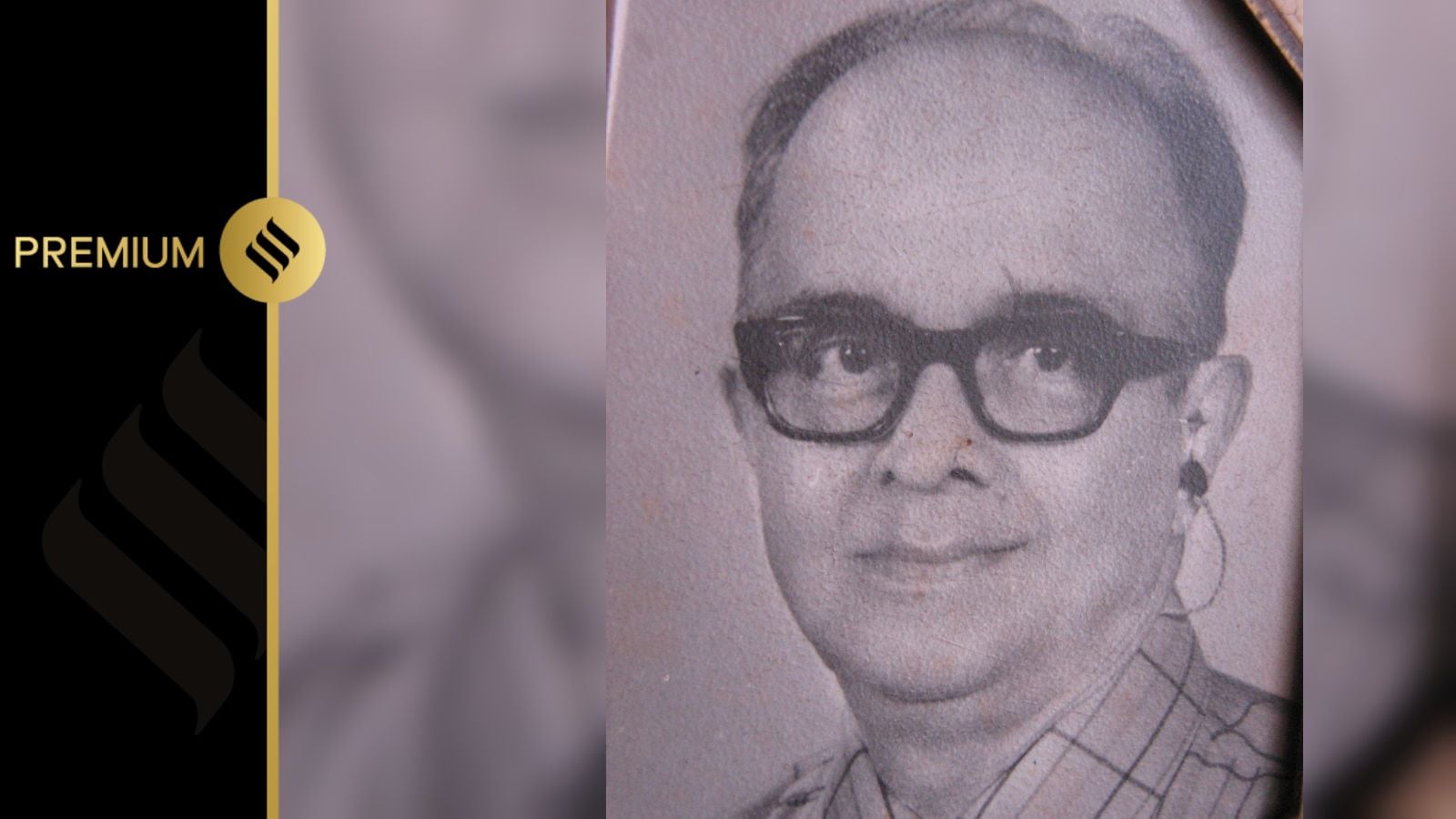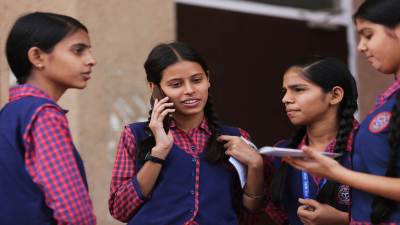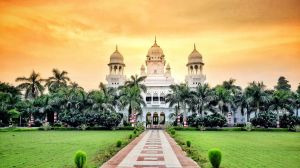On August 10, 1942, the British declared the Congress Working Committee, the All India Congress Committee and the four Provincial Congress Committees as “unlawful associations” under the Criminal Law Amendment Act of 1908.
The colonial law, a precursor to many later-year laws meant to prosecute terrorist and unlawful activities, allowed the arrest of members of an ‘unlawful association’, so declared by the provincial government.

Less than a decade later, in March 1950, the same law was invoked by the Congress government in Madras to declare the People’s Education Society, a cultural society, as an “unlawful association” for being a “danger to public peace” and “carrying on propaganda on behalf of the Communist Party”.
The society’s secretary, V G Row – a veteran trade unionist and co-founder of the renowned Row & Reddy, a Madras-based law firm that continues to champion the rights of workers — challenged the constitutionality of the law, first in the Madras High Court and later in the Supreme Court, and argued that the ban infringed upon the fundamental rights conferred on him by the new Constitution.
On March 31, 1952, a four-judge bench of the Supreme Court led by then Chief Justice of India M Patanjali Sastri struck down the law.
 Row & Reddy continues to run out of the iconic Andhra Insurance Building on Thambuchetty Street in Chennai.
Row & Reddy continues to run out of the iconic Andhra Insurance Building on Thambuchetty Street in Chennai.
The law to declare unlawful associations has appeared in several draconian avatars since the ruling — from the Terrorist and Disruptive Activities (Prevention) Act, 1987, to the Prevention of Terrorism Act of 2002 or the Unlawful Activities (Prevention) Act, 1967 – but the VG Row ruling set a landmark precedent that a law must only impose “reasonable restrictions”. While doing so, the court introduced a test to determine if a law excessively limited citizens’ freedoms.
The court said that “the nature of the right alleged to have been infringed, the underlying purpose of the restrictions imposed, the extent and urgency of the evil sought to be remedied thereby, the disproportion of the imposition, the prevailing conditions at the time, should all enter into the judicial verdict” while determining reasonableness.
Story continues below this ad
The ‘test’ that the court laid out would in later years evolve into the “structured proportionality test” which is now used to test legislation that encroach on fundamental rights. This test essentially requires the state to show that its action, restricting a fundamental right, is proportional to its goal. This is a guard against arbitrary action that could completely wipe out a right in the garb of pursuing even a “legitimate state interest”.
 Row & Reddy, a Madras-based law firm set up by V G Row and ADV Reddy in the pre-Independence years, continues to champion the rights of workers.
Row & Reddy, a Madras-based law firm set up by V G Row and ADV Reddy in the pre-Independence years, continues to champion the rights of workers.
Born in 1907, Vombatkere Gurunandan Row was the son of Justice Vombatkere Pandrang Row, an ICS officer who was transferred briefly as a judge of the Madras High Court. It was while he studied law that Row took to Communist ideology, influenced by his maternal uncle Sundar Bhat Kasargod, a “red-hot leftist” and a doctor in London. In 1931, Row was called to the Bar at Gray’s Inn, London, but the Barrister-at-law returned to practice in India.
 Row headed workers union including Lipton Tea and used to meticulously read balance sheets to negotiate for workers.
Row headed workers union including Lipton Tea and used to meticulously read balance sheets to negotiate for workers.
A few years later, he set up Row & Reddy. Row’s partner at the firm, ADV Reddy, left early on, when he became a magistrate in 1946 and later a judge of the Andhra Pradesh High Court. Later, A Ramachandran joined the firm as the new partner, but the name on the board stayed put.
“Many of the early constitutional cases that the Supreme Court heard came from Madras, particularly from Row & Reddy,” says 88-year NGR Prasad, the managing partner at the firm.
Story continues below this ad
The case challenging the preventive detention of Communist leader A K Gopalan – the first constitutional case that the Supreme Court would hear – was also the firm’s brief. It was Row who spotted M K Nambyar, a young advocate arguing a death row case in the Madras High Court and had him argue for Gopalan.
For the Gopalan case, Row, travelling from Madras to Delhi in a second-class compartment, is said to have worked on a large typewriter, researching and drafting the brief that Nambyar would argue in the apex court.
Speaking to The Indian Express, Row’s younger son Major General (retired) S G Vombatkere explains why the doyen didn’t argue the case himself. According to Vombatkere, early in Row’s career, he had lost his hearing as an adverse reaction to an anti-malaria drug, which meant he couldn’t argue in court.
In the State of Madras vs V G Row case, too, Row had assigned Nambyar before the Madras High Court. While the High Court decided in his favour, the Madras government filed an appeal before the Supreme Court, which eventually upheld the High Court decision.
Story continues below this ad
Recalling the impact of the ruling on his life, Vombatkere says, “It is because of that case that I am what I am. Otherwise, my father would have been in jail, and my family would have broken up.”
 Many of the early constitutional cases that the Supreme Court heard came from Row & Reddy.
Many of the early constitutional cases that the Supreme Court heard came from Row & Reddy.
It is perhaps this faith in the judiciary that led him to be a litigant in seminal constitutional cases. In 2019, Vombatkere challenged the constitutional validity of the 2019 Aadhaar Ordinance and Regulations, and in 2021, he challenged another colonial law, Section 124A of the Indian Penal Code, that criminalises sedition.
Row, who also headed the All India Bank Employees Association and other workers’ unions in the State Bank of India, Reserve Bank of India and Lipton Tea, would meticulously read balance sheets to negotiate for workers. He was behind the enactment of the Tamil Nadu Shops and Establishment Act 1947. Later, in the 1950s, the legislation to protect the rights of workers became a template for the rest of the country.
“He occasionally smoked a cigar and liked his cigarettes but traded that for beedis to blend in with the workers he represented. I remember his simplicity and his trademark white shirt and white trousers,” says Prasad, the managing partner at Row & Reddy.
Story continues below this ad
Senior advocate R Vaigai, who has worked at Row’s law firm, recalls arguing a labour rights case in 1990 that Row started in 1952.
“This was a case raising a demand for a bonus from the Madras Electricity Department. Years before the Payment of Bonus Act, 1965, was enacted, Row had formulated the right of workers to have a share in profits. But the government had refused to refer the dispute for adjudication, so Row argued that this reference cannot be denied on the state’s whim,” says Vaigai. While a single bench and a division bench of the Madras HC dismissed the case, Row & Reddy moved an appeal before the SC, where it won the case.
“By then, labour law had evolved to catch up with Row’s arguments and the case was referred back to the HC. I argued the matter in 1990 and won. However, most of the workers had retired or were dead. They would have got some Rs 10 or 15 bonus, but it shows Row’s foresight,” she adds. The Payment of Bonus Act, mandating employers to pay bonuses to their employees was only introduced in 1965.
Row formally gave up his primary membership in the Communist Party in 1964, but continued working for trade unions in courtrooms and outside. At the age of 60, he retired and moved to Bengaluru. He died in 1980, but the law firm he ran out of the iconic Andhra Insurance Building on Thambuchetty Street in Chennai continues to do pro bono work for those in need.




 Row & Reddy, a Madras-based law firm set up by V G Row and ADV Reddy in the pre-Independence years, continues to champion the rights of workers.
Row & Reddy, a Madras-based law firm set up by V G Row and ADV Reddy in the pre-Independence years, continues to champion the rights of workers. Row headed workers union including Lipton Tea and used to meticulously read balance sheets to negotiate for workers.
Row headed workers union including Lipton Tea and used to meticulously read balance sheets to negotiate for workers. Many of the early constitutional cases that the Supreme Court heard came from Row & Reddy.
Many of the early constitutional cases that the Supreme Court heard came from Row & Reddy.




























